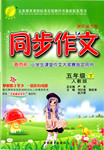题目内容
In a low voice, she ______ that someone was moving about upstairs.
A. shouted to me B. signed to me C. whispered me D. whispered to me

 春雨教育同步作文系列答案
春雨教育同步作文系列答案
October 31, 2009, California
Tsien Hsue-shen, PhD'39, one of the founders of the Jet Propulsion Laboratory, died on October 31, He was 98.
Tsien, born in the eastern Chinese city of Hangzhou, graduated from the National Qinghua University in 1934 and in August of 1935 he left China to study at the Massachusetts Institute Technology. In 1936 he went to the California Institute of Technology to commence graduate studies .Tsien obtained his doctor degree in 1939 and would remain at Caltech for 20 years, becoming the Goddard Professor and establishing a reputation as one of the leading rocket scientists in the United States.
In 1943, Tsien and two others in the Caltech rocketry group drafted the first document to use the name Jet Propulsion Laboratory. During the Second World War, he was amongst the other scientists participated the "Manhattan Project" .After World War II he served as a consultant to the United States Army Air Force. During this time, Conlonel Tsien worked on designing an intercontinental space plane. His work would inspire the X--20Dyna-Soar which would later be the inspiration for the Space Shuttle. In1945 Tsien Hsue--shen married Jiang Ying, the daughter of Jiang Baili--one of the Chinese nationalist leader Chiang Kai--shen's leading military strategists. But in 1950, the Chinese-born scientist was accused of harboring Communist sympathies and stripped of his security clearance.
In September 1955 he was permitted to leave for China, where Tsien resumed his research, founded the Institute of Mechanics, and went on to become the father of China's missile program, a trusted member of the government and Party's inner circle, and the nation's most honored scientist, Tsien retired in 1991 and has maintained a low public profile in Beijing, China. The PRC government launched its manned space program in 1992 and used Tsien's research as the basis for the Long March rocket which successfully launched the Shenzhou V mission in October of 2003.The elderly Tsien was able to watch China's first manned space mission on television from his hospital bed.
In his late years, since the 1980s, Tsien devoted himself to spirituality research, and advocated scientific investigation of traditional Chinese medicine, Qigong and "special human body functions".
【小题1】 The underlined word "commence" in this passage probably means ____
| A.make up | B.get | C.begin | D.promise |
| A.45 | B.28 | C.24 | D.34 |
a. his later life
b. return to China
c. career in the U.S.A
d. his early life and education
| A.a-b-c-d | B.d-c-b-a | C.d-b-c-a | D.c-b-d-a |
| A.Tsien Hsue--shen got a doctor's degree in 1939. |
| B.Tsien Hsue--shen married Jiang Ying, the daughter of Chinese nationalist leader Chiang Kai-shen. |
| C.Tsien Hsue-shen has made a contribution to the Space Shuttle. |
| D.Tsien Hsue-shen was interested in traditional Chinese medicine, qigong and "special human body functions" in his later life. |
October 31, 2009, California
Tsien Hsue-shen, PhD'39, one of the founders of the Jet Propulsion Laboratory, died on October 31, He was 98.
Tsien, born in the eastern Chinese city of Hangzhou, graduated from the National Qinghua University in 1934 and in August of 1935 he left China to study at the Massachusetts Institute Technology. In 1936 he went to the California Institute of Technology to commence graduate studies .Tsien obtained his doctor degree in 1939 and would remain at Caltech for 20 years, becoming the Goddard Professor and establishing a reputation as one of the leading rocket scientists in the United States.
In 1943, Tsien and two others in the Caltech rocketry group drafted the first document to use the name Jet Propulsion Laboratory. During the Second World War, he was amongst the other scientists participated the "Manhattan Project" .After World War II he served as a consultant to the United States Army Air Force. During this time, Conlonel Tsien worked on designing an intercontinental space plane. His work would inspire the X--20Dyna-Soar which would later be the inspiration for the Space Shuttle. In1945 Tsien Hsue--shen married Jiang Ying, the daughter of Jiang Baili--one of the Chinese nationalist leader Chiang Kai--shen's leading military strategists. But in 1950, the Chinese-born scientist was accused of harboring Communist sympathies and stripped of his security clearance.
In September 1955 he was permitted to leave for China, where Tsien resumed his research, founded the Institute of Mechanics, and went on to become the father of China's missile program, a trusted member of the government and Party's inner circle, and the nation's most honored scientist, Tsien retired in 1991 and has maintained a low public profile in Beijing, China. The PRC government launched its manned space program in 1992 and used Tsien's research as the basis for the Long March rocket which successfully launched the Shenzhou V mission in October of 2003.The elderly Tsien was able to watch China's first manned space mission on television from his hospital bed.
In his late years, since the 1980s, Tsien devoted himself to spirituality research, and advocated scientific investigation of traditional Chinese medicine, Qigong and "special human body functions".
【小题1】The underlined word "commence" in this passage probably means ____
| A.make up | B.get | C.begin | D.promise |
| A.45 | B.28 | C.24 | D.34 |
a. his later life b. return to China c. career in the U.S.A d. his early life and education
| A.a-b-c-d | B.d-c-b-a | C.d-b-c-a | D.c-b-d-a |
| A.Tsien Hsue--shen got a doctor's degree in 1939. |
| B.Tsien Hsue--shen married Jiang Ying, the daughter of Chinese nationalist leader Chiang Kai-shen. |
| C.Tsien Hsue-shen has made a contribution to the Space Shuttle. |
| D.Tsien Hsue-shen was interested in traditional Chinese medicine, qigong and "special human body functions" in his later life. |